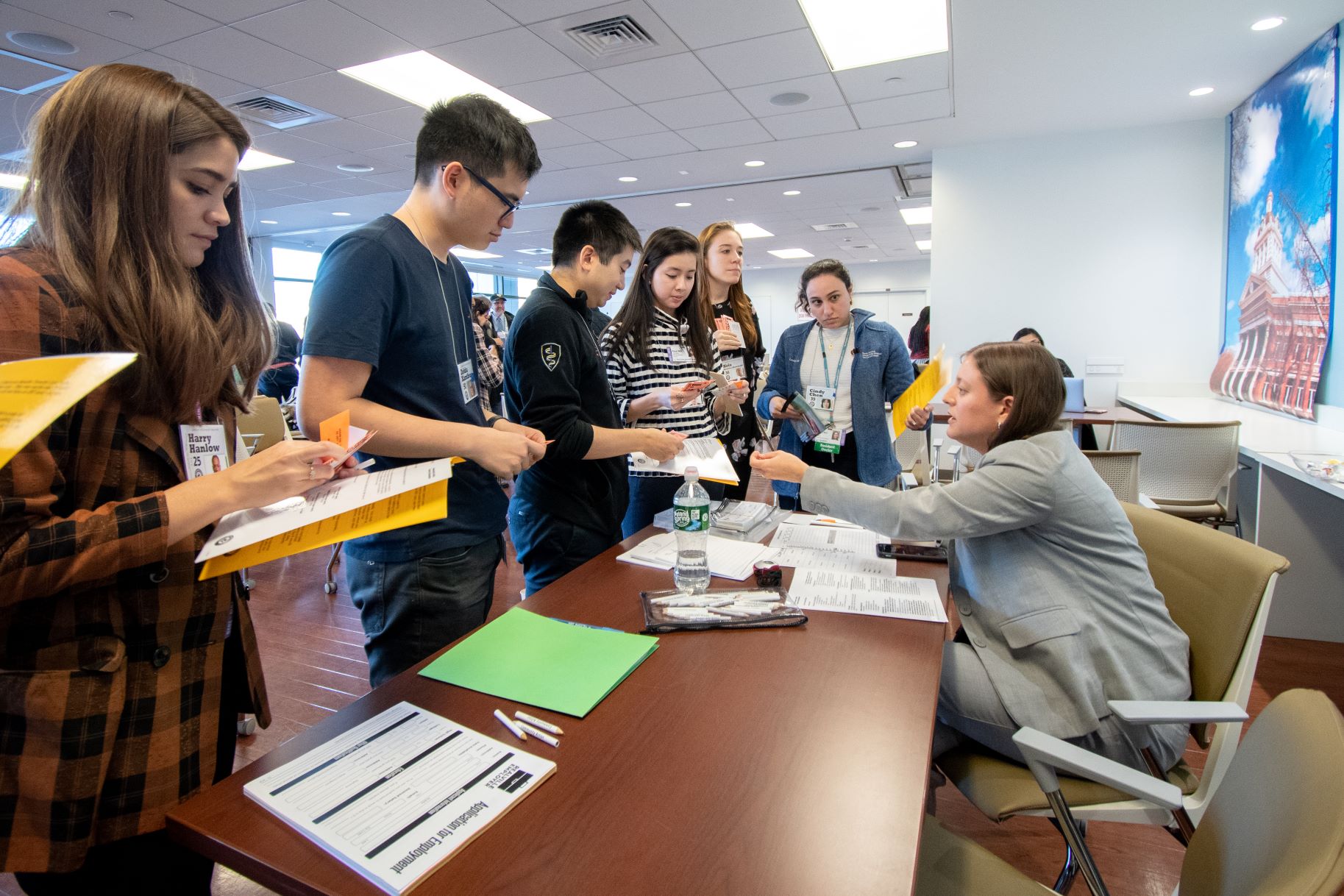Poverty impacts more than 40 million people in the United States, including thousands in our communities. Although it is not something that medicine can cure, it is something that the health care field can address.
Seeking to advance understanding and advocacy for those in need was the goal of a recent simulation exercise co-organized by the Hofstra Northwell Medical-Legal Partnership and the Improving Patient Access, Care, and Cost through Training program which brought together about 80 medical and pharmacy students, residents and fellows to learn the realities of surviving in poverty.
The poverty simulation was conducted last Thursday, Nov. 21, at the Zucker School of Medicine at Hofstra/Northwell.
“Those who live in poverty are likely to suffer from food and housing insecurity, increased incidences of disease, depression, addiction and disabilities, limited access to quality medical care, shorter lifespans, stereotyping and prejudice,” said Dr. Lyndonna Marrast, assistant professor of medicine at the Zucker School of Medicine and co-organizer of the event with Dr. Johanna Martinez, associate professor of medicine.
“We want to sensitize the students [and clinicians] to the day-to-day realities of life for people in poverty,” said Martinez.
Poverty is not a game
During the exercise, each participant was assigned to a “family” living in
poverty. All families received a pack of information with biographies, job information, and assets, including money and transportation passes.
The exercise, representing one month in poverty based on real-life scenarios, included four half-hour periods where the families scurried around the room, visiting fictitious establishments. These included check-cashing and transportation hubs, a pawn shop, an interfaith community church, police department, social services, and other critical community stops to find support, make ends meet on a limited budget, and keep their family intact.
“It was emotionally draining, a continuous negative state. There was always someone in need. We would do the best we could to help, but often we couldn’t. It was eye-opening as to how difficult it is for all involved,” said Alice Fornari, associate dean for educational skills development at the Zucker School of Medicine who played the role of a social service worker.
From couples with children and senior citizens to single-parent households, each family dealt with varied circumstances and unexpected dilemmas such as a parent in jail, a family member with chronic health problems, unemployment or low-paying work, threat of deportation, eviction and homelessness, robbery and theft, lack of transportation, child and elder care issues, and teens and young adults having to decide between their education versus going to work to support their family.
Following the exercise, participants, during a debrief described feelings of frustration, fear, anxiety, guilt, helplessness, anger, and desperation.
“In my family, I was playing the role of a teen at school most of the day. I felt that family life carried on without me until I got home. All I would hear is that we need money and we need it now however we can get it. When the opportunity presented itself, I stole to help my family survive,” said fourth-year medical student, Roshawn Johnson. “Being in that position gave me an appreciation of the struggles and impulsive choices that a person may make in this situation.”
The poverty simulation kit used for the exercise is licensed by the Missouri Community Action Network and has been adopted by educational and nonprofit groups nationwide. Event co-facilitator Judge Fern Fisher, special assistant for social justice initiatives to the dean of the Maurice A. Deane School of Law at Hofstra University, introduced the Community Action Poverty Simulation to Hofstra Law students and helped to bring the experience to the medical school.
“This is not a game but real-life stories of struggle,” said Judge Fisher. “We need to do our part to understand and have compassion. What you have learned here will make a difference.



